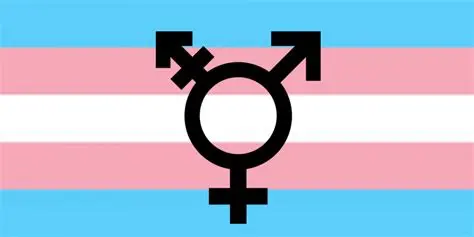Non-binary seems like it could have several non-compatible meanings, so I wanted to list some of those meanings and see if there are any others out there I don’t know.
One way I could think of non-binary is as being a kind of third gender category, like there are men, women, and non-binary people. In this sense of non-binary a butch woman who considers themselves a woman would not be non-binary because they are a woman.
Sometimes non-binary is used like “genderqueer” is sometimes used, as a generic description of anyone who doesn’t fit perfectly in the narrow confines of the binary genders (i.e. men and women). In this sense a butch woman could see themselves as a woman, but also as genderqueer and non-binary, as they do not conform to binary gender norms for women.
Another way non-binary seems to be used (related to genderqueer in its historical context) is as a political term, an identity taken up by otherwise cis-sexual and even cis-gendered people who wish to resist binary gender norms and policing. In this sense even a femme cis-sexual woman might identify as non-binary. Sometimes this political identity label might come with a gender expression that cuts against the gender expectations for the assigned sex at birth, but it doesn’t have to. (I recently met two people whose gender expressions matched their assigned sex at birth but who identified as non-binary in this political sense.)
I was wondering what other meanings of non-binary are out there, and how they are commonly used.
Note: gatekeeping what is “really” non-binary seems pointless to me, since I agree with Wittgenstein that “language is use”.
I know people get heated about policing what a word means (and I am guilty of this myself), but in the interest of inclusion, pluralism, and general cooperation in our community I think we can find a way to communicate with overlapping and different meanings of a shared term.


So helpful, thanks Ada!
I think your definition of non-binary is similar to what I was trying to capture with my first account of non-binary as a third gender category (or in a “beyond the binary” model, as the only gender category).
What is interesting to me is that this account of non-binary relies on someone’s experience of gender and on their relation to a socially imposed gender. This raises questions about all the variation, which you have brought up, and maybe this could result in different accounts of non-binary that still all fit under one umbrella concept.
Yes, of course - I think the history of medical gatekeeping (like the Benjamin Rules) and the fact that trans folks are essentially gender outlaws, constantly under the threat of enforcement of a politically dominant gender hegemony, puts us on the defensive about our labels and identities.
In the context of our societies our identities are automatically questioned and doubted, considered fictional or unreal, and considered “wrong” or suspicious. In that context it makes sense to prioritize the authority of the individual to self-identify, and this is a smart move relative to our particular form of political hegemony, which is dominated by an ideology of liberalism which has a rich history of individualism to appeal to. We are able to weave our trans individual autonomy into the broader strands of individualism already present in our society.
To that point, I guess I will speak for myself and to my experience - I have watched myself take and let go of many labels, and it is interesting that the thing that changed was not so much me as much as my understanding, or more to the point, the meanings I had for words. I would have identified with a label like non-binary years ago, where I took that label to mean I did not perfectly conform with the gender I was assigned. The definition sounds very much like your definition, and yet I do not understand it now the same way I would have then. Living as a man then I was unusually soft and failed to conform to my gender in many ways, I would even wear a purse and refused to call it a hand-bag (as perhaps the example of my biggest and most persistent form of gender resistance, which most people found easy to ignore, asserting the binary role of man onto me with ease). Yet for all intents and purposes I lived as a man still and being non-binary was like a technicality for me, something that was true but irrelevant as I was living as a man. There is some amount of shame I experience now in telling this, as I feel I was living as a cis-gendered and cis-sexual person then. Now I have a much richer understanding of non-binary identities, and I know that the in-congruence I experienced before was likely a sign of being trans more than being non-binary (though they are often one in the same). And now as someone who has socially transitioned and would now be described as belonging to trans-gender and trans-sexual (i.e. medically transitioning) categories, I have come to see myself as potentially non-binary in a different sense. Rather than non-binary as a way to describe my incongruence with my assigned sex, now non-binary is a way to describe my incongruence with my chosen gender. I am probably in the ambiguous boundary between binary and non-binary space, and while for practical intents and purposes identify publicly as a binary trans woman, I think of myself as technically non-binary still. All these changes can be unsettling to one’s sense of reality, and I have lost confidence in my ability to know my gender, so everything is left a bit open and ambiguous.
Even now I feel like I am still learning, hence why I’m here asking for new ways of seeing.
That’s already how it works!
The term non binary by itself only tells you who someone isn’t. It doesn’t tell you who they are.
We have demi gendered folk, trans fem, trans masc, agender, xenogender etc. There are 8 genders in the Talmud, and many extant and historical societies acknowledge more than two binary genders.
Yes and no. I’m binary. And strictly speaking, that is a form of self identity, as it’s the label I choose to use when talking about my own experience, and in that context, I am the best authority to speak to my own experience. However, aligning as I do with a binary gender, it means that my experience of gender isn’t a particularly individual experience. My experience of gender is broadly similar to nearly half of the population. So my empowered self chosen identity label leans right in to the hegemonic presentation of gender, and is ultimately, a shared experience.
For me, I struggled to claim ownership of the term “woman”. I struggled to tell the world my gender, but I always felt it. Now though, as you have said, my perspectives have changed from my pre transition self. I often think to myself that if I were 20 years younger, and had grown up with more nuanced representations of gender, I wouldn’t identity so strongly with the binary. I feel the differences between myself and other, predominantly cis women, not in the physical sense, but in terms of our relationships with our own gender experience. Yet despite that difference, I still feel that a binary is the most accurate way of describing my experience, and so that’s how I identity.
Ultimately though, the terms we use aren’t authoritive, and they’re not prescriptive. They’re subjective and descriptive, which means they are at best, an imperfect “shortcut” to describe our experience of gender, both in our own minds, and to others. It’s why there are an infinite number of genders, because there are infinite ways of describing experiences with an entities sense of self.
I didn’t consider the way that genders outside the “Western culture” would relate, it’s interesting that they are getting folded in here as non-binary. It makes sense considering how often anthropologists have reported third-gendering in other cultures, though it is still unclear to me how accurate the anthropologists are in reporting these genders (for example some “third gender” people are more likely to communicate fairly binary-sounding gender identities).
I wonder how much of this comes from the societal pressure to fit within the gender binary, that in some ways the space created for non-binary and trans-affirming identities might also allow people to feel less dysphoria and more comfortable in a non-binary gender.
A lot of my dysphoria seems contingent on social norms, for example my insecurities in my gender are often quite similar to the insecurities other women have. In that sense I’m just experiencing an acute form of gender policing that is applied to anyone in the social class of “woman”. (Perhaps this is a kind of misogyny, and it is made acute for me precisely because my body deviates so extremely from the gender rules that are so strictly enforced.)
This makes me think that if the social norms were different, the shape and intensity of my dysphoria would also be different. I think I would still experience some kinds of dysphoria regardless, but I recognize particularly with body dysphoria the ways that society shapes some of those feelings.
Yes, like the “is a hotdog a sandwich” comic I shared in my OP, language is use. People try to make the terms authoritative, after all there are political reasons for doing so, but it is a good reminder that reality is far more complex and wily than our language implies.
I have more thoughts about my identity and the ways that binary or non-binary labels fit, but I can’t tell that anyone would find them valuable. It sounds like we have some similarities in our gender.
I really appreciate the time you took to write out your experiences, thank you.